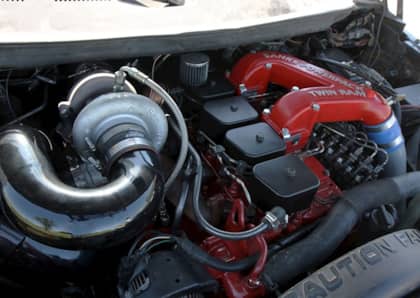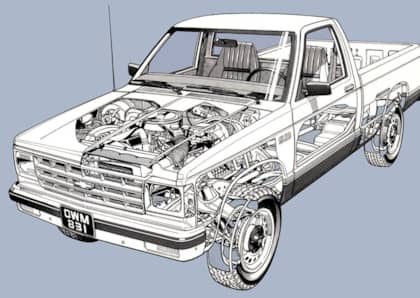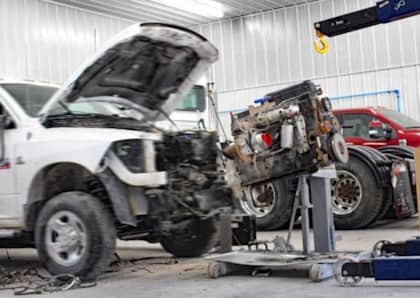More Than Meets the Eye with DUB IR™ Tint

Window tinting isn’t a modification that’s exclusive only to the hardcore car enthusiast community—it’s everywhere. The blackout-limo shade of tint from the ‘80s is what brought on restrictions of how dark you could go on your windows, and safety tint laws were put into effect, not only so you could see better through your windows at night, but so cops can also see what’s going on inside the vehicle. Crazy as it seems, tint can be a lot more than just an aesthetic change; window tint can benefit you and your passengers’ health.
DUB Magazine may not strike a chord with tinting at first mention, unless you count the endless vehicles they’ve covered over the years having tint. Having health in mind, DUB recently launched a new product that’s not aimed specifically at enthusiasts but more towards the everyday consumer.

DUB IR™ is a new type of Nano ceramic tint that’s designed to block out harmful UV and infrared rays (IR), which is something that not all tints can do, no matter how dark the tint shade is. Driving a vehicle in broad daylight actually exposes you to more UV rays than you think, even if you’re partially shaded. Think of it like leaving the house without sunblock—you won’t be burned as if you would be standing in direct sunlight, but over time it can and will show its effects. DUB IR™ is currently in the process of acquiring the Skin Cancer Foundation’s Seal of Approval, which will only give you more reason to strongly consider this upgrade.
While we can’t force you to apply sunscreen every day, we do highly suggest, at the very least, outfitting your ride with DUB IR™ tint. It’s said to reject over 80% of infrared while blocking out 99% of UV rays. At the same time it also rejects up to 60% of heat, which will keep your interior cabin cooler. DUB IR™ is available in a variety of light and dark shades with 100% clarity to make it a fully legal modification, depending on your state’s laws.
DUB IR™ can’t be purchased by consumers as raw materials but your local installer can order as much or little that’s needed to tint your vehicle from DUB’s dealer network. Remember to check your state law to see what the legal amount of shade can be applied to your vehicle. In some instances, DUB IR can be used in a lighter shade and still perform as described. We recently visited AP Sounds and Customs in Southern California where they removed a generic, darker tint in favor of a lighter DUB IR™ upgrade.

Your installer should be able to remove old tint easily, and if you’re doing this yourself, it actually is easy. Use a steamer to help get the edges to peel free and throw that cheap stuff in the garbage.

Next you’ll want to remove as many contaminants from the factory glass surface as possible. Even if your car’s never had tint before, this step will be needed to ensure as smooth a mating surface as possible.

AP does have one trick up their sleeve to gain the edge over their competitors, and that’s using a vinyl plotter/cutter and special software to cut the film to a vehicle’s exact measurements, which includes all side windows, rear glass and in some cases, the front windshield (although not legal in every state; again, check your state’s laws).

Old school tint installers relied on their eyes and hands, and unless you are old school, it’s tough to beat the precision of this machine, no matter how good you are.

Next the tint is trimmed out of the master roll sheet—using the plotter not only saves time but materials, which also means, saving money.

Before the DUB IR™ tint is applied to the inner glass, AP’s installers form the tint on the outside, which makes it more spot on to position once it is ready to apply to the inside.

It takes a lot of extra time but you want your tint done right, right? Right.

Once the tint’s been applied, give it a solid once-over to make sure there are no contaminants or air bubbles, and if there are, you can continue to work on it until they’ve been cleared.

Here's the DUB IR™ tint once it's installed—it’s a touch darker than the factory tint (which, by the way, isn’t actual tint, it’s merely colored glass without any protection from UV and IR rays), adheres to proper vehicle code and will do what it’s meant to do: protect the skin you’re in and keep your vehicle cooler; it’ll also protect your interior from sun fade and damage.
For more info on DUB IR™, visit www.dub-ir.com.
BONUS IMAGES










